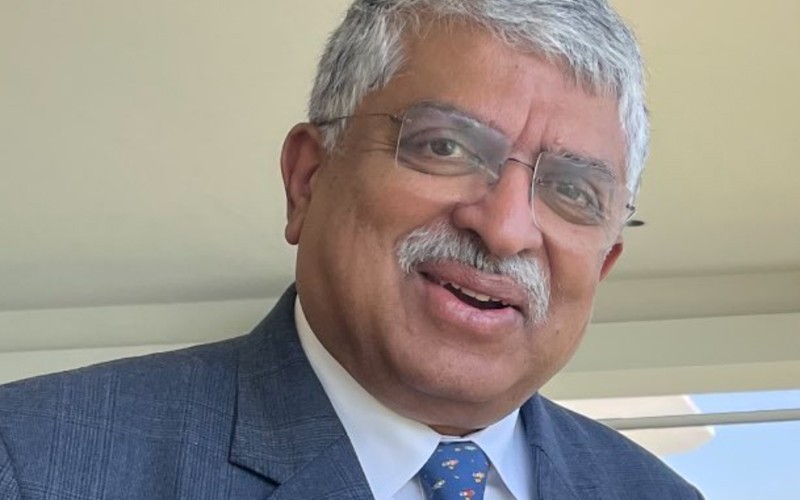
Nandan Nilekani commits fresh funding to AI4Bharat, total support reaches ₹70 cr to power Indian language AI
Chennai: Building on the momentum of his initial contribution, Infosys co-founder Nandan Nilekani has pledged a second multi-year grant to AI4Bharat, an open-source initiative at IIT Madras developing foundational AI models for Indian languages, The Economic Times reported.
With this, Nilekani’s total funding support to the project has risen to ₹70 crore.
AI4Bharat, which functions as a key pillar in India’s multilingual digital push, is gathering 15,000 hours of transcribed speech data across over 400 districts covering all 22 constitutionally recognised Indian languages.
Alongside, an in-house team of over 100 translators is compiling a parallel corpus consisting of 2.2 million translation pairs across the same linguistic set.
“This grant, issued directly by Nandan Nilekani, reflects his belief that AI4Bharat is one of the most impactful technology infrastructure projects in India. Their work will play a vital role in making India the AI use case capital of the world,” said a statement from the EkStep Foundation, which was founded by Nilekani.
In the statement, Nilekani added, “AI4Bharat is building the infrastructure that ensures every Indian can access digital services in the language they speak. I strongly believe that India can be the use case capital of AI in the world. With our DPI foundation, we can build better AI, and in turn, AI can turbocharge DPI. Our belief is that AI should be inclusive, not extractive. It should amplify every human being’s potential. That’s our vision of AI for the people—AI to make lives better, AI to amplify human potential.”
EkStep did not disclose the quantum or duration of the second grant.
Details of the first grant also remain undisclosed.
However, the first tranche in 2022 led to the establishment of the Nilekani Centre at AI4Bharat, supporting digitisation of Indian languages and development of AI infrastructure for local use cases.
According to the statement, the rapid development of regional language applications—just weeks after the release of ChatGPT in 2022—demonstrated the strength of AI4Bharat’s foundational models.
These tools now serve as critical infrastructure behind a wide range of governance and public-facing solutions.
AI4Bharat’s open-source models in speech recognition, translation, and text-to-speech are now integrated into major platforms.
These include Bhashini, India’s national language platform under the IndiaAI Mission, which uses these tools to extend multilingual services across governance, healthcare, and financial systems.
Other deployments include the Supreme Court’s SUVAS platform that translates judicial rulings into regional languages, and the National Payments Corporation of India’s voice-based UPI functionality in native languages.
In agriculture, chatbots such as Kisan e-Mitra rely on these AI models to deliver real-time updates to farmers in local dialects.
All of AI4Bharat’s linguistic datasets across the 22 scheduled Indian languages are available as public goods and accessible through its website, with integration into AIKosh, India’s open-source AI repository.
The initiative has also attracted collaboration from India’s private AI ecosystem. Bengaluru-based Sarvam AI, the first startup chosen under the ₹10,000 crore IndiaAI Mission to build indigenous foundation models, confirmed it is working closely with AI4Bharat.
“We are collaborating with AI4Bharat, in Indian language AI research, to build these models,” said Sarvam cofounder Pratyush Kumar.
“With the growing need for Bharat-specific AI models, and also reducing the possibility of a potential AI divide, the vision of 'AI for All' is extremely relevant for our country,” said Prof V Kamakoti, director of IIT Madras.
Support Our Journalism
We cannot do without you.. your contribution supports unbiased journalism
IBNS is not driven by any ism- not wokeism, not racism, not skewed secularism, not hyper right-wing or left liberal ideals, nor by any hardline religious beliefs or hyper nationalism. We want to serve you good old objective news, as they are. We do not judge or preach. We let people decide for themselves. We only try to present factual and well-sourced news.







